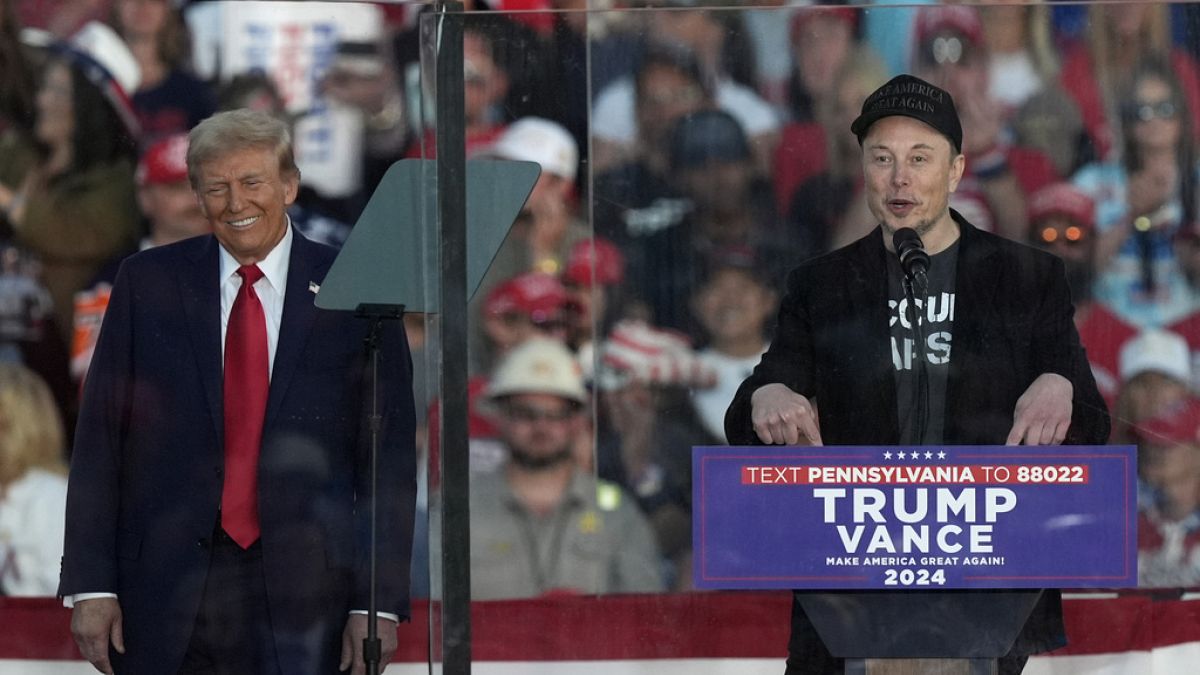President-elect Donald Trump has announced the formation of a new “Department of Government Efficiency” to be led by Elon Musk and Vivek Ramaswamy. The acronym for the department is a playful nod to Musk’s favorite cryptocurrency, dogecoin. The purpose of this department, according to Trump, is to pave the way for his administration to dismantle government bureaucracy, slash excess regulations, cut wasteful expenditures, and restructure federal agencies. Musk and Ramaswamy will work outside of the government, offering advice and guidance to the White House in partnership with the Office of Management and Budget.
It remains unclear how the Department of Government Efficiency will operate, as it may fall under the Federal Advisory Committee Act, which sets guidelines for external groups advising the government. Unlike formal federal workers, Musk and Ramaswamy will not be required to disclose their assets and potential conflicts of interests. Musk posted on social media expressing excitement for the department and its potential impact on government bureaucracy, signaling his commitment to the cause. Trump has previously mentioned giving Musk a formal role in overseeing a group focused on reducing government spending, but it is unlikely to be a full-time position given Musk’s other obligations.
The establishment of the Department of Government Efficiency reflects Trump’s commitment to reforming and streamlining the federal government. By tapping into the expertise of individuals like Musk and Ramaswamy, the administration hopes to bring a fresh, entrepreneurial approach to government that has not been seen before. This initiative aims to drive large-scale structural reform and create efficiencies in government operations. Musk’s reputation as a successful entrepreneur and innovator, combined with Ramaswamy’s experience as a former GOP presidential candidate, brings a unique perspective to the table.
The partnership between Musk, Ramaswamy, and the Office of Management and Budget signifies a collaborative effort to address issues related to government bureaucracy and inefficiency. While the specifics of how the Department of Government Efficiency will operate are still unclear, the involvement of external advisors like Musk and Ramaswamy suggests a willingness to explore new ideas and solutions. The department’s focus on slashing government spending and restructuring federal agencies aligns with Trump’s goal of reducing excess regulations and wasteful expenditures.
The formation of the Department of Government Efficiency has drawn attention for its unconventional approach to addressing longstanding issues within the federal government. By enlisting the expertise of individuals from outside the traditional government framework, Trump’s administration is signaling a willingness to think outside the box and embrace new perspectives. Musk’s presence at Mar-a-Lago and his active engagement with the president-elect further highlight his commitment to promoting government efficiency and reform. The department’s emphasis on entrepreneurial thinking underscores a shift towards a more innovative and flexible approach to governance.
In conclusion, the announcement of the Department of Government Efficiency and the appointment of Elon Musk and Vivek Ramaswamy as its leaders mark a significant step towards government reform under the Trump administration. By leveraging the expertise of individuals with diverse backgrounds, the administration aims to drive structural reform, reduce inefficiencies, and promote a more entrepreneurial approach to governance. While the specifics of the department’s operations are still evolving, its establishment underscores a commitment to streamlining government processes and cutting wasteful expenditures. Musk’s involvement in this initiative reflects his dedication to challenging bureaucratic norms and finding creative solutions to complex problems. As the Department of Government Efficiency begins its work, it will be closely watched to see how it contributes to Trump’s vision of a more efficient and effective government.











